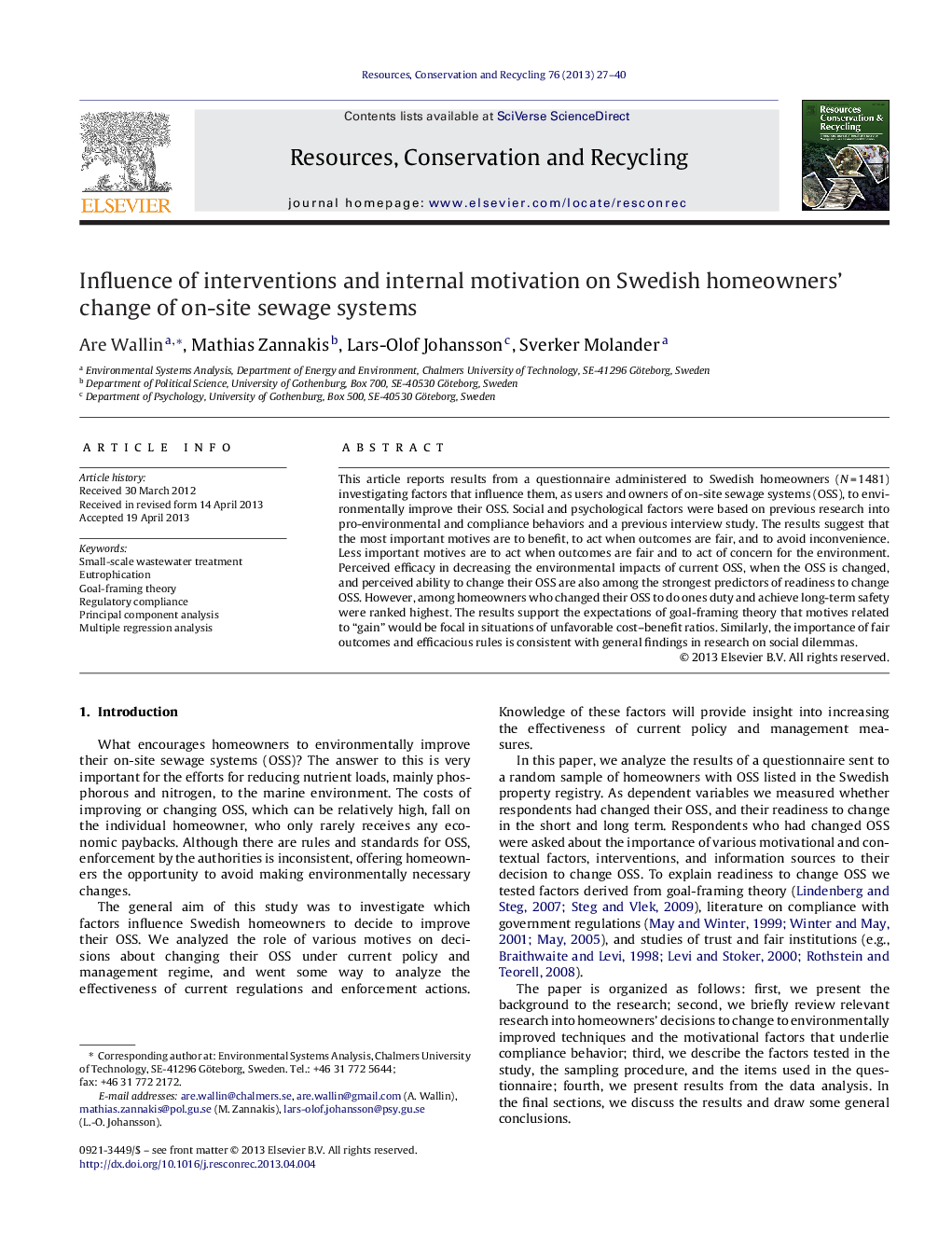| کد مقاله | کد نشریه | سال انتشار | مقاله انگلیسی | نسخه تمام متن |
|---|---|---|---|---|
| 1063124 | 1485713 | 2013 | 14 صفحه PDF | دانلود رایگان |

• We investigated factors explaining intentions to change OSS and actual change of OSS.
• The most influential motive is gain, but fair outcomes is important as well.
• Environmental concerns have a minor influence on behavior.
• Informing about the rules that applies and the need to change may instigate change.
• Rule enforcement, through injunctions, is needed for the majority of homeowners.
This article reports results from a questionnaire administered to Swedish homeowners (N = 1481) investigating factors that influence them, as users and owners of on-site sewage systems (OSS), to environmentally improve their OSS. Social and psychological factors were based on previous research into pro-environmental and compliance behaviors and a previous interview study. The results suggest that the most important motives are to benefit, to act when outcomes are fair, and to avoid inconvenience. Less important motives are to act when outcomes are fair and to act of concern for the environment. Perceived efficacy in decreasing the environmental impacts of current OSS, when the OSS is changed, and perceived ability to change their OSS are also among the strongest predictors of readiness to change OSS. However, among homeowners who changed their OSS to do ones duty and achieve long-term safety were ranked highest. The results support the expectations of goal-framing theory that motives related to “gain” would be focal in situations of unfavorable cost–benefit ratios. Similarly, the importance of fair outcomes and efficacious rules is consistent with general findings in research on social dilemmas.
Journal: Resources, Conservation and Recycling - Volume 76, July 2013, Pages 27–40